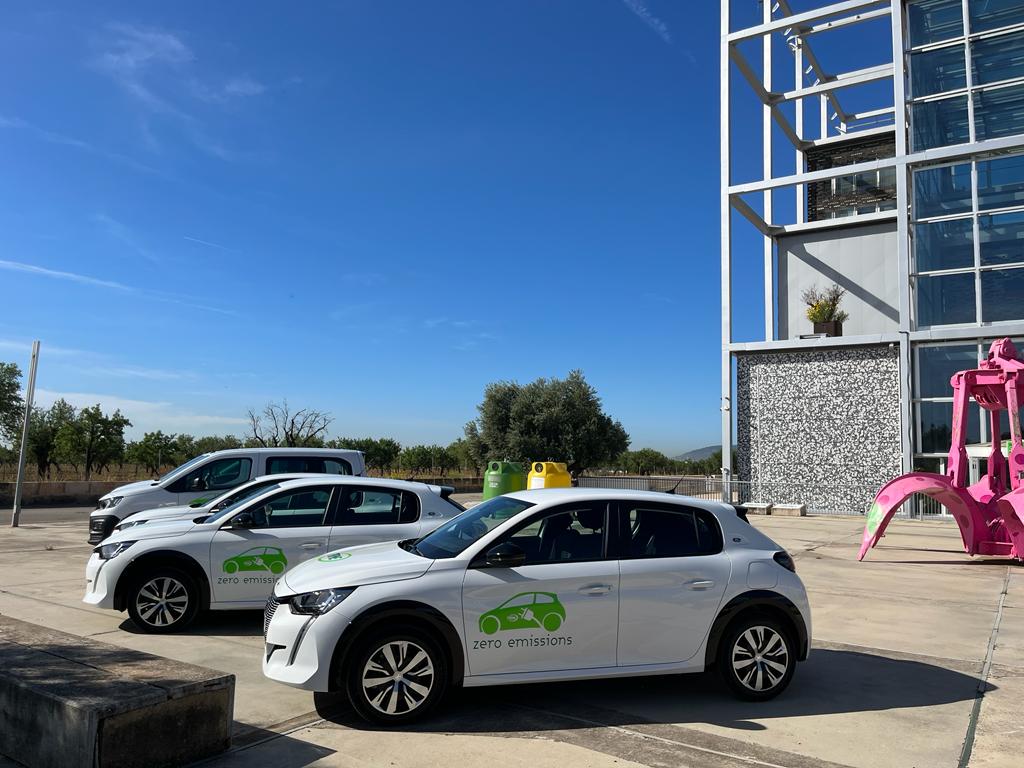
100% of the fleet of conventional electric vehicles has been renewed and the first tests have been carried out to transport waste from transfer stations
31/03/23 - NewsTIRME has renewed the fleet of 100% electric vehicles. A total of 15 vehicles, 8 cars and 7 vans have been purchased. It has been decided to acquire different models depending on the utility that will be given to the new electric vehicles: for short routes, utility vehicles and work vans. With these acquisitions, TIRME has a fleet of conventional vehicles where more than 90% of them are electric.
Almost 25% of greenhouse gases come from internal combustion vehicles (gasoline and diesel). The adoption of new electric means of transport helps to avoid global warming of the planet. The replacement of combustion vehicles by electric vehicles is one of the best alternatives to reduce CO2 emissions, the main cause of the greenhouse effect. For all these reasons, TIRME is committed to sustainable mobility (electric mobility) by generating zero direct emissions. This contributes to meeting one of the EU's 2030 objectives that aims to move towards a low-carbon economy within the framework of the new circular economy.
In 2022, 158,955 kilometres were travelled with electric vehicles in TIRME. With this measure, 26,705.08 kg of CO2 have been stopped. This is the modest contribution of TIRME to the transformation of the transport sector to increase its environmental efficiency, taking into account efficient management and the promotion of means of transport with lower environmental and energy costs as a principle of action, thus reducing its own carbon footprint.
The next challenge will be to use electric vehicles to transport waste from the different transfer stations to the treatment plants. To study the technical, economic and environmental feasibility, real tests of this transport have been carried out from the different transfer stations located in Calviá, Campos, Manacor, Alcudia and Binissalem. These are transports with a maximum weight of 42 tons that transport around 20 tons of waste. The distances in Mallorca are optimal to be able to carry out these transports with 100% electric vehicles. The results are encouraging and show that there are already 100% electric tractors on the market capable of performing this type of heavy transport.